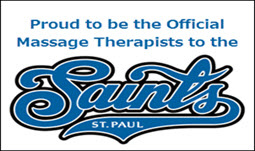Here’s an all-too-common situation. You develop low back pain that lasts for more than a few days and you’re uncomfortable enough to go see your primary care physician. He or she tells you it’s not clear what’s going on and sends you for a MRI study of your lumbar spine. The study comes back showing one or two herniated intervertebral discs. [Intervertebral discs are cartilaginous shock absorbers interspaced between pairs of spinal vertebras.] Your doctor informs you that you have “herniated discs in your back” and prescribes medications and a course of physical therapy. Your doctor may even refer you to an orthopedic surgeon to evaluate the need for surgery on your back.
Is Medicine & Physicla Therapy The Way To Go?
Now, all of these recommendations may be necessary. Or none of them may be necessary and all that’s needed is some rest and an exercise rehabilitation program that you could do on your own if you were given the proper instructions. The culprit here is how the presence of the herniated disc or discs is interpreted. It’s important to remember that not all herniated discs are a problem requiring a solution. In fact, a sizable proportion of such disc herniations (30% or more)1 represent the progression of natural processes and are not a problem at all.2,3 But many family doctors and even specialists are not appropriately trained in accurate differentiation among the various possibilities. When faced with MRI evidence of a herniated disc, such doctors see it as a disorder or disease that needs to be treated and fixed. Such an approach results in significant stress and leads to unnecessary procedures and financial hardship for many patients.
Be Informed & Communicate With Your Doctor
Given the frequency of occurrence of such instances of “over-diagnosis”, how can a person with back pain expect to receive appropriate care? Of course, people as patients are usually not in a position to be able to overrule their doctor’s recommendations. The answer lies in obtaining relevant information. Let your doctor know you’re aware that up to one-third of normal persons have herniated discs, and ask whether it’s possible that your disc herniation is in fact unrelated to your back pain and merely an incidental finding. Further, if your back pain is not accompanied by leg pain radiating below your knee, it may be that the disc herniation is not affecting spinal nerve roots and may be treated by very conservative measures such as rest followed-up with exercise.
Chiropractic Care May Be An Effective Treatment
Thus, not all disc herniations have the same impact on a person’s health. Some represent normal findings, even if they are present in a person who has back pain. Let your doctor explain to you exactly why your particular problem requires more than watchful waiting. Our chiropractor, Dr. Kurt Brausen, will be able to provide you with the very best expert advice and recommendations for any necessary treatment. He is at our St. Paul clinic on Monday, Wednesday and Friday and at our Burnsville clinic on Tuesday and Thursday.


